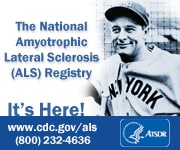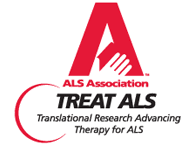
Let's see.
On Monday the news broke that the NFL and the NFLPA would provide benefits to former players diagnosed with ALS. That was huge. For a long time there have been the rumblings about the number of NFL players who have been afflicted. For the league and the players' association to agree to provide benefits is a both an acknowledgement and a compassionate gesture. Newscasts and print media have room for NFL news at this time of year. Radio waves are filled with talk of football. Where was the coverage of the 88 Plan and ALS? Where were the good questions that should have been asked about the names of the players and the history of the problem and the studies on athletes and the controversy of head trauma and college football stars who have also been afflicted and on and on? Has the story's shelf life now past without having raised any meaningful ALS awareness? Should organizations involved in the battle against ALS also have shown some prompt public gratitude for the NFL and NFLPA working together to address the problems of their players with ALS?
On Tuesday we got wind that the CDC's ALS Registry was to be launched on Wednesday. There was to be an embargo on news until 8 a.m. on Wednesday so that the CDC's ATSDR could make the announcement. What's the point of an embargo if you're not working with the media to make the story pop? Pfffft. There was very little media coverage on Wednesday... or on Thursday. This is an important repository for retaining information on people with ALS. Thousands of people have pleaded with legislators for a number of years to make this happen. Many of these advocates did not live to see the registry launch. We could have explained the outrageous fact to America that nobody had been counting noses of people with ALS until Wednesday. Why not tell the world about the United States taking leadership in surveillance of cases of ALS? This was a reason to tell America that we owe it to all Americans to figure out if there are environmental factors that can trigger death via ALS. This was a reason to talk about ALS.
This truly was a slow news week. We saw and read more than we wanted about Juan Williams and Joe Miller and Virginia Thomas and Lindsay Lohan and whether Roddy White trash talks more than Chad Ochocinco. This should have been a huge news week about something that is a matter of life and death -- ALS. The stories were there. Who was dishing them up for the media?
Great Caesar's ghost.










5 comments:
Pictured is Lane Smith who played Perry White of the Daily Planet in Lois & Clark. http://en.wikipedia.org/wiki/Lane_Smith
Lane Smith died from ALS in 2005.
The ALS community has lost it's way. Who knew of Lane Smith with ALS? Some ALS groups need reform and should prioritize spending rather than try to load all the bases. When public policy is 20% of the mission, then 50% should be invested in marketing. Football players accessorized in Pink for a whole month? How Silly?
That pink idea didn't come from a bunch of development people sitting in a room thinking about fighting cancer the way people had always fought cancer -- with community fundraisers and direct mail appeals. It came from a bunch of enraged women who wanted both to honor the courage of other women and to get breast cancer out of the shadows. I salute an effort that gets men and women to think about breast cancer every time they see pink.
Those engaged in the ALS fight need to do something new and different and creative to get ALS out of the shadows. The same-old-same-old has failed. ALSA and MDA running copycat patient vignettes during May does not make a complete ALS awareness campaign. Michael Goldsmith set up a nice pitch for us but we whiffed it. How do we get people to think of ALS every time they see something? How do we get healthy Americans to squirm a little (after all, many of today's people with ALS were perfectly healthy and vibrant citizens a few months ago). We need a bunch of enraged and creative people with the energy and sparks to make America and the world pay attention. We don't have survivors, so we need to do dare to be different.
There are thousands of people with diagnosed ALS who aren't on ALSA's emailing lists. There are thousands of people with ALS who don't go to ALS clinics. There are thousands of people with ALS who don't even go to a neurologist regularly since the trips to the doctor can far outweigh the benefits that the doctor is able to offer. How are those people reached so that they will enroll themselves in the U.S. National Registry?
Print and broadcast media, perhaps?????????
There is way more that can be done than an occasional newspaper article or wearing-not wearing the red bracelet. What would Cisco Systems be without marketing?
Post a Comment